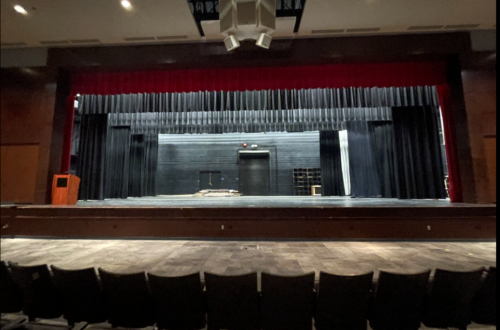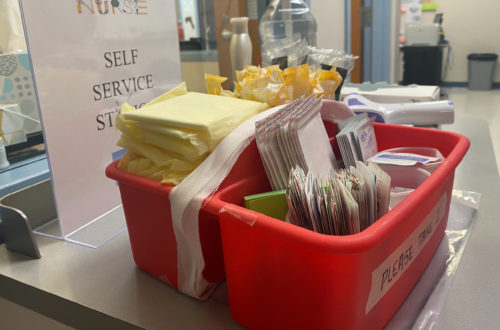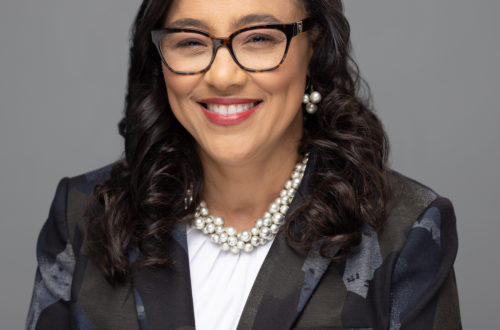Two ACHS students provide personal accounts of the 2021 Taliban invasion.
Salma El Gourchal
Staff Writer
Alexandria City High School is a melting pot. Every year, hundreds of students transfer to the school from across the country and the globe. Many of them end up in the International Academy in the A300s, which has made it a hallway rich with culture and incredible stories. Among them are Afghan immigrants, who have formed a rich community and a sense of solidarity. In 2021, the Taliban invaded Afghanistan. Two ACHS students were there. They gave Theogony a look into that traumatic day and what followed.
Meena Saadat, a senior, recounted the summer she will never forget. Sadaat watched the streets of her home fill up with violent, unIslamic soldiers carrying machine guns. She saw smoke rising by the U.S. embassy.
Sadaat was born and raised in Kabul, Afghanistan. She first came to the United States in 2017 and moved to Alexandria in 2019. After two years of being so far from “home,” she was due to go back and visit. This time, it wasn’t what she expected.
Feeling homesick, Saadat and her family traveled back to Afghanistan in June 2021 to visit family and close friends. Everything seemed to be normal until the morning of August 15. She was staying overnight at her grandparents’ house when she woke up to the news of the Taliban’s entering the capital of Kabul and announcing the full takeover of the country. Saadat recalls it being “a nightmare.”
The Taliban is a violent group that skews the teachings of the Qur’an (Koran), the holy text of Islam, to support its extremism. Knowing the horrendous acts the Taliban has done in the past, and hearing that the president escaped, didn’t help alleviate Saadat’s family’s concerns. “Now they took over the country, we were thinking they would kill us all,” Saadat said.
Later that day, she and her family went to her cousin’s apartment building, which overlooked the U.S. Embassy. They watched helicopters constantly arrive and depart the building. She remembers smoke arising in the vicinity of the embassy.
“We just stood there on the balcony . . . We were just speechless,” Sadaat recalled. Her family knew they had to leave instantly. The U.S. Embassy in Kabul reached out to Sadaat’s father by email because of his former position as a translator. The embassy told him and his family to hurry, pack their things and wait for directions to get them out of the country. One of Sadaat’s cousins had already called to tell the family to evacuate and travel to the airport immediately, which they did.
The city was filled with Taliban soldiers holding machine guns and staring down anyone who went by—including Saadat and her family. Once they got to the airport, they were greeted by mayhem. The airport was packed with Afghans and foreigners on vacation trying to flee alongside American soldiers attempting to keep some order. Saadat and her relatives waited 15 hours for a cargo plane. The plane took them to Qatar, where they waited at an impromptu refugee camp for eight hours to take another flight to Dulles International Airport. Sadaat described the escape as “such a relief.”
Sadaat still has family in Afghanistan, and she keeps them even closer to her heart now.
“I have been in touch, and they are trying to go back to normal life,” she said. But not everything can be the same. She added that the Taliban are prohibiting girls from attending school after the sixth grade. “Things are still messed up.”
Hosai Rasuli, a senior, had a different point of view; she left the day before the invasion, but the feelings were still the same. Rasuli is originally from Kabul, with her roots spread across there and Parwan, a rural province in the Northeast. She migrated directly to Alexandria just one day before the invasion, able to come directly through the Special Immigrant Visa Program. This program was created by the U.S government that grants permanent residence to people who aided the U.S. government abroad. “It was the most terrible feeling. The most terrible feeling a human . . . can have to see. You and your country lose everything; lose all the improvements and hard work that we did through twenty years ago.”
On October 7, 2001, the United States and its close allies overthrew the Taliban after they had ruled for over four years. From that day, the Afghan people worked to undo the effects the Taliban had on the country and improved the economy and society.
“Everything was getting better and better day by day,” Rasuli said. The Afghan people still felt betrayed. During the invasion, Afghan President Ashraf Ghani fled the country, leaving the citizens, military and police helpless and fending for themselves.
“The government had the power to control everything. We had the military to protect the country and were able to fight and save the country, but [the Afghan military and people] were sold.” Rasuli said. “They were waiting for the government to order them to fight because they couldn’t do anything without permission, and they lost the country and never received the needed permission to take action. Everything was planned. History is being repeated.”

“It was shocking and sad for all Afghans, not just me and my family,” said Rasuli. “It’s hard to explain how it feels to not have a home, or if someone asks, ‘Where are you from?’, saying Afghanistan, somewhere that doesn’t exist anymore. There’s no flag anymore. There’s no actual Afghanistan anymore.”
She could not accept the downfall of the place she calls home.
“The scariest part was knowing what was going to happen [based on] what people experienced 20 years ago . . . the same situation and inequality, the same fear and people being kidnapped, hit, killed, for no reason but being an Afghan, or being a woman, or not being their slave,” Rasuli said.
The Taliban are widely known for their brutality: from killings to misogyny to limiting freedoms and rights for no apparent reason. They have one of the worst human rights records in the world, ranked 20th by globaleconomy.com. According to the 2022 World Report by Human Rights Watch, the United Nations reported that the Taliban accounts for nearly forty percent of civilian deaths and injuries in Afghanistan.
“People say in today’s world we have democracy. Slavery no longer exists, no more inequality, we have natural rights, but these statements would never be true about what is going on in Afghanistan,” Rasuli said.
Though she didn’t directly face the invasion, she felt for the people who did. She felt the tears, the grief, the fear and the aggression that her people felt, as well as the numbness of knowing they can’t do anything about it.
“All people were and are dead people, who are still moving, breathing, eating but not feeling,” she said.
Rasuli is one of the many people in the Afghan diaspora who are fearful for the well-being of their families back home. She conveyed what she hears from family members on the country’s status.
“[Afghans] are in a very bad economic condition . . . [Alongside] mental and physical illnesses, they’ve lost their jobs, homes, country, nationality and everything,” she said. “They can hardly find food and [fulfill] their needs. Schools are closed. [The Taliban] still plans some attacks and blasts [bombs] to stop people from learning and improving.”
Still, hope is not lost. The shared trauma of the invasion has created a sense of family throughout the ACHS Afghan community, whether they faced it directly or indirectly. They work together to keep their hopes and pride high for their beloved country.
Featured image: Inside a cargo plane on its way to Qatar from Afghanistan, filled with refugees and American soldiers (back of photo in uniform). Photo courtesy of Meena Sadaat.






